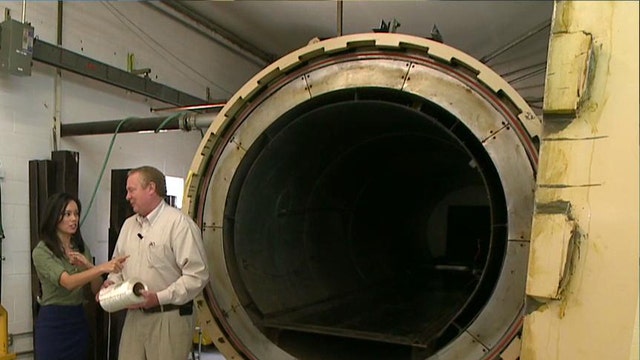Waiting for the Hyperloop? What’s Next for the Travel World
Elon Musk’s plans for a 720 miles-per-hour “hyperloop,” which would move passengers from New York City to Los Angeles in 45 minutes, will transform the travel industry--if it ever comes to fruition.
Until then, the coastal trip will still take 6-plus hours and come with complimentary jet lag.
But travel industry analysts say the industry is beginning to harness technology to leverage ideas hospitality marketers have long had in mind. For example, Sol Wave House or @SolWaveHouse in Spain is the world’s first Twitter hotel. The hotel’s #SocialWave community allows guests to tweet, Instagram and Facebook (NASDAQ: FB) on the hotel’s Wifi network.
“These trends are tangible evidence that ideas have traction,” says Brian London, travel industry analyst and publisher of Travel Industry Indicators – a monthly trend letter for the travel industry. “It used to be late checkout, the ability to pick your own pillow- now hotels are starting to match this technology in a self-selection protocol where consumers can design the best travel experience. I see hotels becoming a hub for technology.”
Say Goodbye to Planned-Out Itineraries
More hotels are also beginning to invest in high-end video conference technology, according to London to attract budget-conscious travelers and their employees.
This trend was further bolstered by a recent Congressional proposal to cut federal travel budgets by up to 50% by 2017.
Mobile devices and technology that taps into “near-here” deals to find local entertainment, dining and adventures are also continuing to grow.
“The travel industry is picking up on deals nearby, which is a big ‘tech-y’ revolution because the consumer doesn’t have to plan what they are doing—they can pick up and go,” White says.
The days of using guide books and planning every hour of a trip might be a thing of the past. “The use of mobile devices has enabled this ‘pickup and go’ attitude, where the travel-planning process has become so truncated that it’s almost non-existent,” he says. “Mobile smartphone usage gives consumers the ability to book at the last minute and access that information from anywhere with just one application.”
New Type of Travel Gear
As tech becomes every traveler’s best friend, keeping all of those gadgets charged is a task in and of itself, says Sarah Schlichter, senior editor of IndependentTraveler.com. Companies like Urban Junket and J. Bullivant are introducing backpacks and purses with built-in solar panels to charge tablets, laptops and smartphones while on the go.
Airports, including Los Angeles’ LAX Delta Sky Club, are testing wireless charging stations for travelers as well.
“You don’t even have to plug in your device, you just put it on the charging pad and it is powered wirelessly,” she says. “This could potentially free us from huddling over the power outlets [at airports].”
Streamlining the Travel Experience
Aside from travelers’ own devices, hotels are also starting to provide their guests with personal tablets for use during their stays, says Schlichter. For example, at the Eccleston Square Hotel in London, visitors receive iPad 2 devices to order hotel services and can also use them out and about in the city.
More airports are also allowing self-check in and pre-printed luggage tags, says London.
“It’s a negative experience to wait in line to have your luggage tag printed out,” he says. “This lets you have your bag tag printed so you can just drop it at the curbside gate.”
Hotels like Marriott, for example, are also testing technology that lets users check-in with just a few taps of their mobile phones. The program is for Marriott Rewards members and allows them to check in and pick up a pre-programmed key once their room is ready.
The TSA’s expedited screening program is also expanding, says Schlichter, and is now available at 40 different airports in the U.S.
“If you pass and pay the $100 fee for five years, you can go through expedited screenings so you can get through the lines faster,” she says.




















